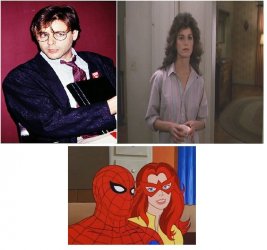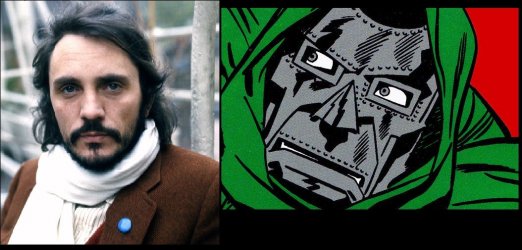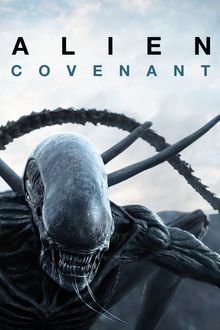- Sep 22, 2013
- 4,956
- 250
- 85
American films have become much more expression oriented since the days of D.W. Griffith --- e.g., Fight Club, Syriana, Minority Report, Superman IV: The Quest for Peace, etc.
Since pedestrian prose is more 'graphic,' comic book media (which are very bold in playfulness) have become very popular --- e.g., Batman Begins, Darkman, Marvel's Avengers, Wonder Woman, Justice League, etc.
So if we imagine that an expressive film-maker such as Stanley Kubrick plans a visionary comics-adapted movie of Spider-Man (Marvel Comics), with a young Linda Fiorentino as the idealistic 'super-heroine' Firestar (a woman with fireball-powers), Judd Nelson as the valiant Spider-Man (an urban defender), and Terence Stamp as the villainous Doctor Doom (a masked fascist), we might realize why Americans are fascinated by 'strange stories.'
After all, we know from the cultural value of David Cronenberg's iconic re-make The Fly (starring Jeff Goldblum) that storytellers of the modern age are interested in stories about strange individuals engaging in strange behaviors (sometimes even under the 'guise of science').
What kinds of 'strange-intellect' stories are 'permissible' in a democracy?
Will 'TrumpUSA' be considered an Orwellian-regime? It all depends on the nature of our storytellers!
This little vignette (my last one) was inspired by Men in Black.
Cheers,

====
The year was 1983, and visionary film-maker Stanley Kubrick wanted to recruit precocious young American actor Judd Nelson to star in a new film about Spider-Man (Marvel Comics) he was 'designing.' Kubrick wanted Judd to portray the intelligent Peter Parker who is secretly Spider-Man. Kubrick also wanted to recruit the young beautiful actress Linda Fiorentino to portray Spider-Man's female ally and superheroine Firestar. Spider-Man, the web-soaring urban defender, and Firestar, a fireball of courage and wisdom, were to tackle the evil Doctor Doom (a masked fascist).

After much deliberation, Kubrick decided to cast Terence Stamp as Doctor Doom, and even though Stamp was already known for his iconic performance as the evil General Zod in the Richard Donner superhero film Superman II, Kubrick knew Stamp would be the perfect actor to capture all the Machiavellian angst and fury of the cold Doctor Doom. The stage was set, and Hollywood (USA) audiences were in for a treat --- a big-budget silver-screen presentation of Spider-Man and Firestar dealing with the terrorism-oriented Doctor Doom in a decade brimming with excitement regarding movies, Wall Street, TVs and society fashions.

As Kubrick was planning his Spider-Man film, his film-making peer Ridley Scott was busy deciding what to do with his work with the newly-envisioned sci-fi horror-film Alien (starring Sigourney Weaver as a bold female space-explorer encountering a terrifying predatory alien intelligence and learning how to survive). Scott believed Alien would spark an entire franchise which would change the way movie audiences conceptualized 'encounters' with strange imagination and environments. Kubrick in fact liked the Spider-Man (Marvel Comics) storylines involving the fiction science-research firm Oscorp which was involved in the biochemical analysis of bizarre mutants threatening society as 'goblins' and 'ghouls.'

After much consideration, Kubrick decided to scrap his idea for the Spider-Man project, opting instead for a conceptual film about A.I. robots adapted from the Transformers (Hasbro) animated series and comics. Kubrick wanted to make a special 'villainy spotlight film' about the evil Transformer robot Cyclonus (a menacing purple-colored wolfish robot) challenging America's sense of democratic obedience. Kubrick even hired John Williams to design a special film-score for what would be titled Cyclonus: Apocalypse. However, this Cyclonus project was also scrapped, as Kubrick decided in the end to pursue a stark project about the Vietnam War, a film titled Full Metal Jacket.

TRUMP: Films have become very intense.
CARTER: Alfred Hitchcock changed the way we looked at popcorn.
TRUMP: He sure did; today's movie-makers are very expressive.
CARTER: Modern consumerism is very 'entertainment-oriented.'
TRUMP: David Fincher, Michael Bay, Ridley Scott, Christopher Nolan, etc.
CARTER: Yes, these new age film-makers are interested in 'raw emotions.'
TRUMP: Maybe the Internet will make pornography popular again.
CARTER: No, I think there's sufficient social peer-evaluation now (e.g., Facebook, Wikipedia).
TRUMP: Science-fiction represents 'modernism metallurgy.'
CARTER: Comic villains like Brainiac (DC Comics) and Electro (Marvel Comics) are symbolic!
TRUMP: Maybe consumers want 'convenient access' to the social pulpit.
CARTER: That's the hallmark of modern media --- intrigue-chatter!
TRUMP: I wonder if anti-American terrorists despise our 'culture of cotton-candy.'
CARTER: They sure do; and they cite it to argue that capitalism's cops are 'brainwashed.'
====


Since pedestrian prose is more 'graphic,' comic book media (which are very bold in playfulness) have become very popular --- e.g., Batman Begins, Darkman, Marvel's Avengers, Wonder Woman, Justice League, etc.
So if we imagine that an expressive film-maker such as Stanley Kubrick plans a visionary comics-adapted movie of Spider-Man (Marvel Comics), with a young Linda Fiorentino as the idealistic 'super-heroine' Firestar (a woman with fireball-powers), Judd Nelson as the valiant Spider-Man (an urban defender), and Terence Stamp as the villainous Doctor Doom (a masked fascist), we might realize why Americans are fascinated by 'strange stories.'
After all, we know from the cultural value of David Cronenberg's iconic re-make The Fly (starring Jeff Goldblum) that storytellers of the modern age are interested in stories about strange individuals engaging in strange behaviors (sometimes even under the 'guise of science').
What kinds of 'strange-intellect' stories are 'permissible' in a democracy?
Will 'TrumpUSA' be considered an Orwellian-regime? It all depends on the nature of our storytellers!
This little vignette (my last one) was inspired by Men in Black.
Cheers,

====
The year was 1983, and visionary film-maker Stanley Kubrick wanted to recruit precocious young American actor Judd Nelson to star in a new film about Spider-Man (Marvel Comics) he was 'designing.' Kubrick wanted Judd to portray the intelligent Peter Parker who is secretly Spider-Man. Kubrick also wanted to recruit the young beautiful actress Linda Fiorentino to portray Spider-Man's female ally and superheroine Firestar. Spider-Man, the web-soaring urban defender, and Firestar, a fireball of courage and wisdom, were to tackle the evil Doctor Doom (a masked fascist).

After much deliberation, Kubrick decided to cast Terence Stamp as Doctor Doom, and even though Stamp was already known for his iconic performance as the evil General Zod in the Richard Donner superhero film Superman II, Kubrick knew Stamp would be the perfect actor to capture all the Machiavellian angst and fury of the cold Doctor Doom. The stage was set, and Hollywood (USA) audiences were in for a treat --- a big-budget silver-screen presentation of Spider-Man and Firestar dealing with the terrorism-oriented Doctor Doom in a decade brimming with excitement regarding movies, Wall Street, TVs and society fashions.

As Kubrick was planning his Spider-Man film, his film-making peer Ridley Scott was busy deciding what to do with his work with the newly-envisioned sci-fi horror-film Alien (starring Sigourney Weaver as a bold female space-explorer encountering a terrifying predatory alien intelligence and learning how to survive). Scott believed Alien would spark an entire franchise which would change the way movie audiences conceptualized 'encounters' with strange imagination and environments. Kubrick in fact liked the Spider-Man (Marvel Comics) storylines involving the fiction science-research firm Oscorp which was involved in the biochemical analysis of bizarre mutants threatening society as 'goblins' and 'ghouls.'

After much consideration, Kubrick decided to scrap his idea for the Spider-Man project, opting instead for a conceptual film about A.I. robots adapted from the Transformers (Hasbro) animated series and comics. Kubrick wanted to make a special 'villainy spotlight film' about the evil Transformer robot Cyclonus (a menacing purple-colored wolfish robot) challenging America's sense of democratic obedience. Kubrick even hired John Williams to design a special film-score for what would be titled Cyclonus: Apocalypse. However, this Cyclonus project was also scrapped, as Kubrick decided in the end to pursue a stark project about the Vietnam War, a film titled Full Metal Jacket.

TRUMP: Films have become very intense.
CARTER: Alfred Hitchcock changed the way we looked at popcorn.
TRUMP: He sure did; today's movie-makers are very expressive.
CARTER: Modern consumerism is very 'entertainment-oriented.'
TRUMP: David Fincher, Michael Bay, Ridley Scott, Christopher Nolan, etc.
CARTER: Yes, these new age film-makers are interested in 'raw emotions.'
TRUMP: Maybe the Internet will make pornography popular again.
CARTER: No, I think there's sufficient social peer-evaluation now (e.g., Facebook, Wikipedia).
TRUMP: Science-fiction represents 'modernism metallurgy.'
CARTER: Comic villains like Brainiac (DC Comics) and Electro (Marvel Comics) are symbolic!
TRUMP: Maybe consumers want 'convenient access' to the social pulpit.
CARTER: That's the hallmark of modern media --- intrigue-chatter!
TRUMP: I wonder if anti-American terrorists despise our 'culture of cotton-candy.'
CARTER: They sure do; and they cite it to argue that capitalism's cops are 'brainwashed.'
====

